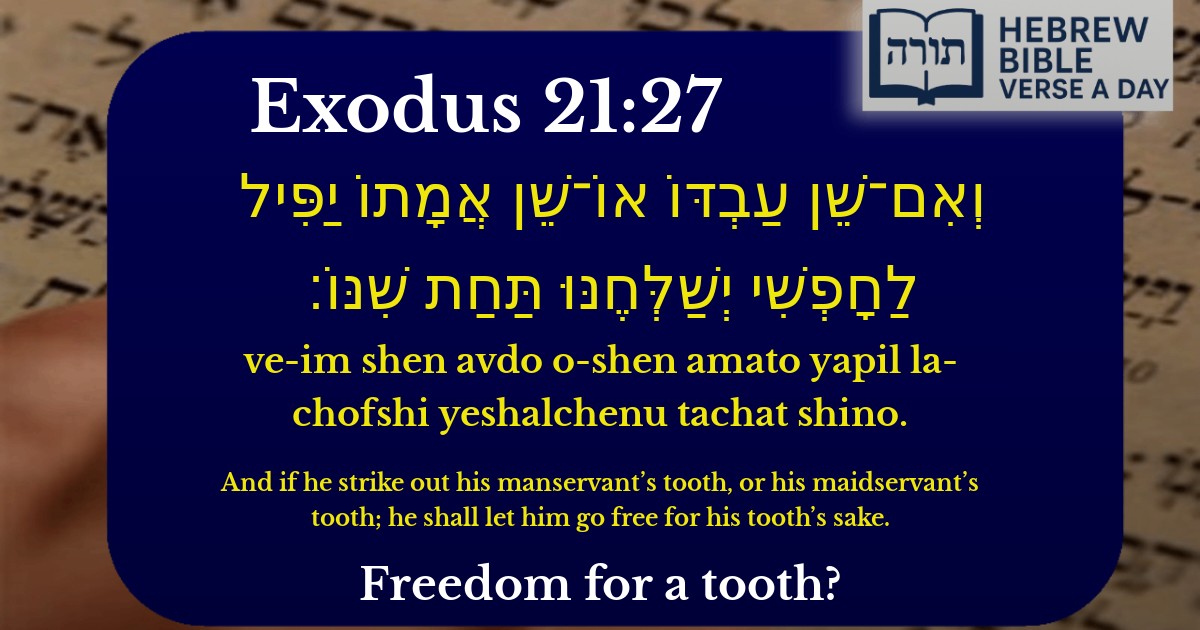Join Our Newsletter To Be Informed When New Videos Are Posted
Join the thousands of fellow Studends who rely on our videos to learn how to read the bible in Hebrew for free!
Hebrew Text
וְאִם־שֵׁן עַבְדּוֹ אוֹ־שֵׁן אֲמָתוֹ יַפִּיל לַחָפְשִׁי יְשַׁלְּחֶנּוּ תַּחַת שִׁנּוֹ׃
English Translation
And if he strike out his manservant’s tooth, or his maidservant’s tooth; he shall let him go free for his tooth’s sake.
Transliteration
Ve-im shen avdo o-shen amato yapil la-chofshi yeshalchenu tachat shino.
Hebrew Leining Text
וְאִם־שֵׁ֥ן עַבְדּ֛וֹ אֽוֹ־שֵׁ֥ן אֲמָת֖וֹ יַפִּ֑יל לַֽחׇפְשִׁ֥י יְשַׁלְּחֶ֖נּוּ תַּ֥חַת שִׁנּֽוֹ׃ {פ}
Parasha Commentary
📚 Talmud Citations
This verse is quoted in the Talmud.
📖 Kiddushin 24a
The verse is cited in a discussion about the laws of Hebrew slaves and the conditions under which they must be set free, particularly focusing on the compensation for physical injuries.
📖 Bava Kamma 26b
This verse is referenced in the context of discussing damages and the principle of 'an eye for an eye,' illustrating specific cases where monetary compensation is required instead of physical retribution.


Literal Interpretation (Peshat)
The verse (Exodus 21:27) states that if a master strikes out the tooth of his Hebrew manservant or maidservant, the servant must be set free as compensation for the injury. Rashi explains that this law applies specifically to a tooth or an eye (as mentioned in the preceding verse), as these are visible and prominent body parts. The Torah emphasizes the severity of damaging these features, as they are essential for a person's dignity and daily function.
Legal Context (Halacha)
According to the Rambam (Hilchos Avadim 2:12), this law applies to any permanent injury inflicted by the master upon his Hebrew servant. The Talmud (Kiddushin 24a) clarifies that the servant goes free not as a monetary compensation but as a punitive measure against the master for his cruelty. The servant’s freedom is automatic and not contingent upon the master’s consent.
Moral and Ethical Lessons (Derash)
The Midrash (Mechilta Mishpatim 7) highlights the ethical dimension of this law, teaching that even a servant—who is in a subordinate position—retains basic human dignity. Striking out a tooth is not merely a physical injury but an affront to the servant’s humanity. The Torah’s insistence on freedom as restitution underscores the principle that no person may be degraded, regardless of social status.
Broader Implications